Results
-
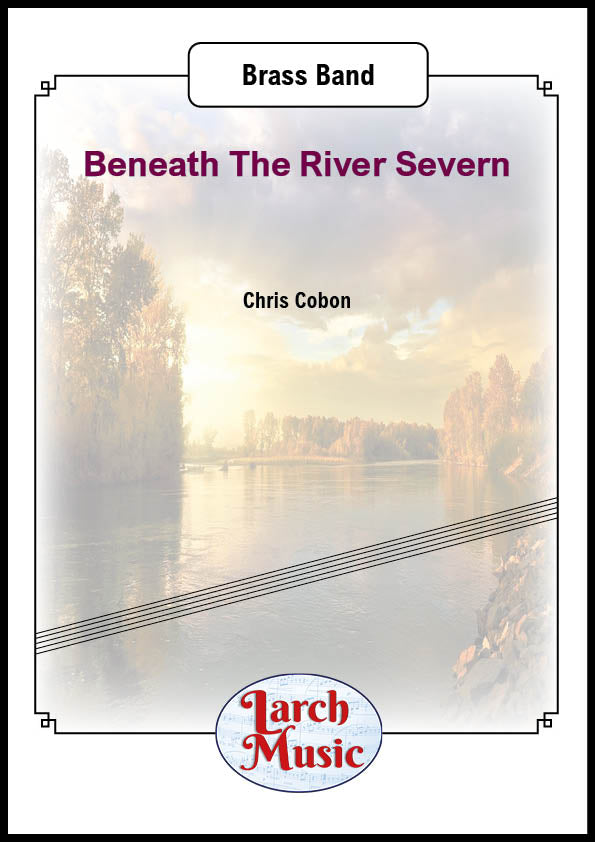 £30.00
£30.00Beneath The River Severn (Chris Cobon) - Brass Band Sheet Music Full Score and Parts - LM283
COMPOSER: Chris CobonBeneath The River SevernProgramme NotesBeneath The River Severn follows on, chronologically,from three pieces about steam engines;LMR600 Gordon, Tornado (LNER Peppercorn Class A160163),The Lady Armaghdale and also 'Moments in Brass' Sets 1+2Living 3 miles from the River Severn, the longest river in Great Britain,I regularly cross it on the way to conduct Highley Colliery Brass Band.Beneath The River Severn aims to capture not only the beauty of the river but also the dangerous undercurrents that lie under the calm surface.The length of the complete piece is 4 minutes 11 secondsMusical Traits:Attempting to avoid stereotype water music,I started with sketches based on quartal harmony but inverted (so 5ths)For example, the first run onEuphonium starts on concert pitch G, Hrns = D, Bari=A, 1st Hrn=E etc."A" represents the undercurrent,which has claimed many lives over the years.An 11-note salute to the greatest river piece,Smetana's Vltava, is worked into this sectionSuitable Section 4 Upwards
In Stock: Estimated dispatch 3-5 working days
-
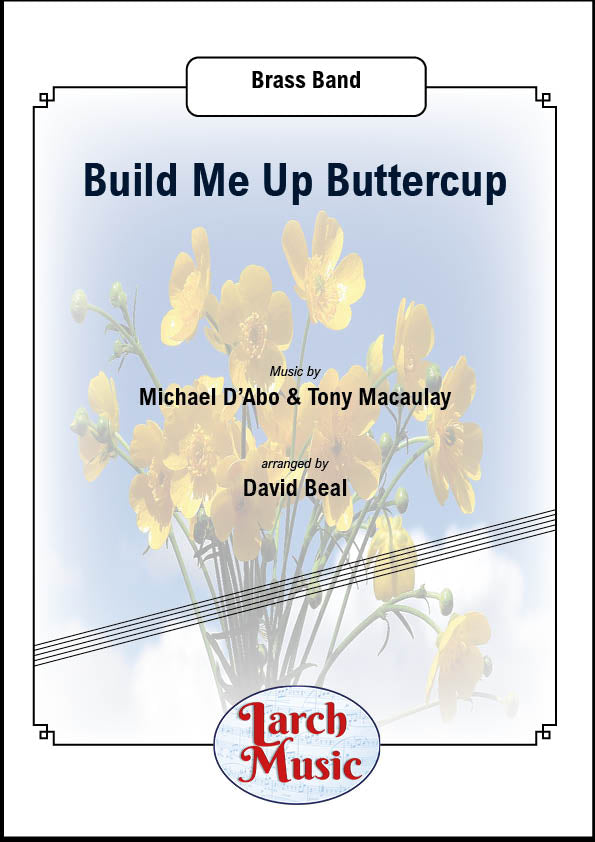 £21.50
£21.50Build Me Up Buttercup (The Foundations) - Brass Band Full Score & Parts Sheet Music - LM721
COMPOSER: Michael D'Abo & Tony MacaulayARRANGER: David BealBrass Band Full Score & Parts Sheet MusicUK SALES ONLYOriginally a hit for The Foundations back in 1968 with Colin Young singing lead vocals.But now available as a brass band arrangement ready for your next concert.A definite crowd pleaser and foot-tapper.LM721 - ISMN : 9790570007219
In Stock: Estimated dispatch 3-5 working days
-
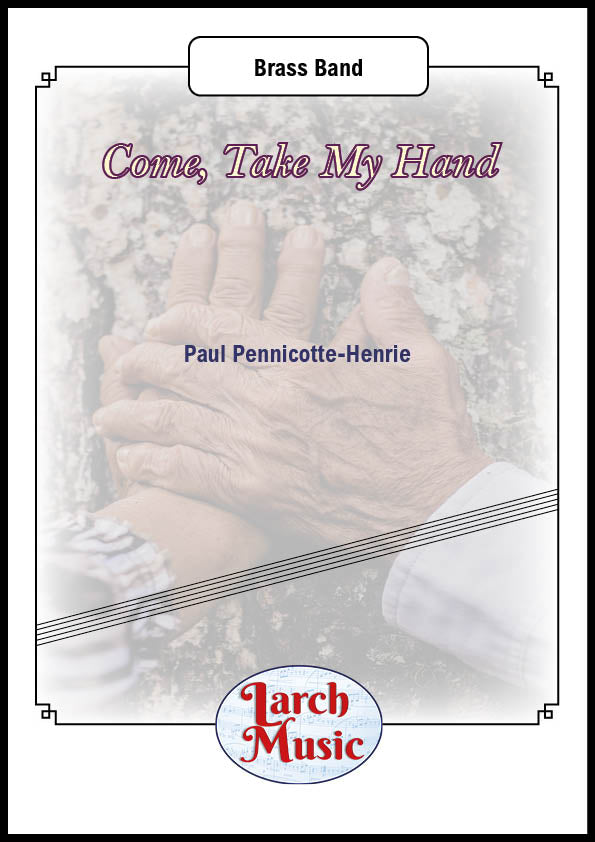 £30.00
£30.00Come, Take My Hand (Paul Pennicotte-Henrie) - Brass Band Sheet Music Full Score and Parts - LM509 - Paul Pennicotte-Henrie
COMPOSER: Paul Pennicotte-HenrieBeautiful harmonies take hold of the listener throughout this wonderful piece.A great addition to your next concertSuitable Section 4 Upwards
In Stock: Estimated dispatch 3-5 working days
-
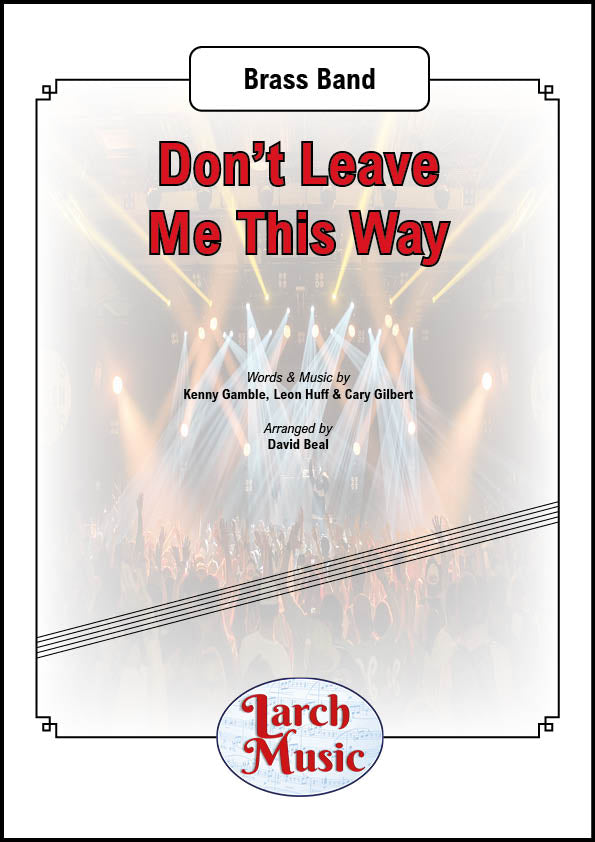 £25.00
£25.00Don't Leave Me This Way - Brass Band Sheet Music Full Score & Parts - LM941
WORDS & MUSIC : Kenneth Gamble, Leon Huff and Cary GilbertARRANGER: David Beal"Don't Leave Me This Way" is a song written byKenneth Gamble,Leon Huff, andCary Gilbert. It was originally released in 1975 byHarold Melvin & the Blue NotesfeaturingTeddy Pendergrass, an act signed to Gamble & Huff'sPhiladelphia Internationallabel. "Don't Leave Me This Way" was subsequently covered by American singerThelma Houstonin 1976 and British duothe Communardsin 1986, with both versions achieving commercial success.But now available, as recorded by the Communards, for brass band ready for your next concert.A definite crowd pleaser and foot-tapper.Sorry UK sales onlyLM941 - ISMN : 9790570009411
In Stock: Estimated dispatch 3-5 working days
-
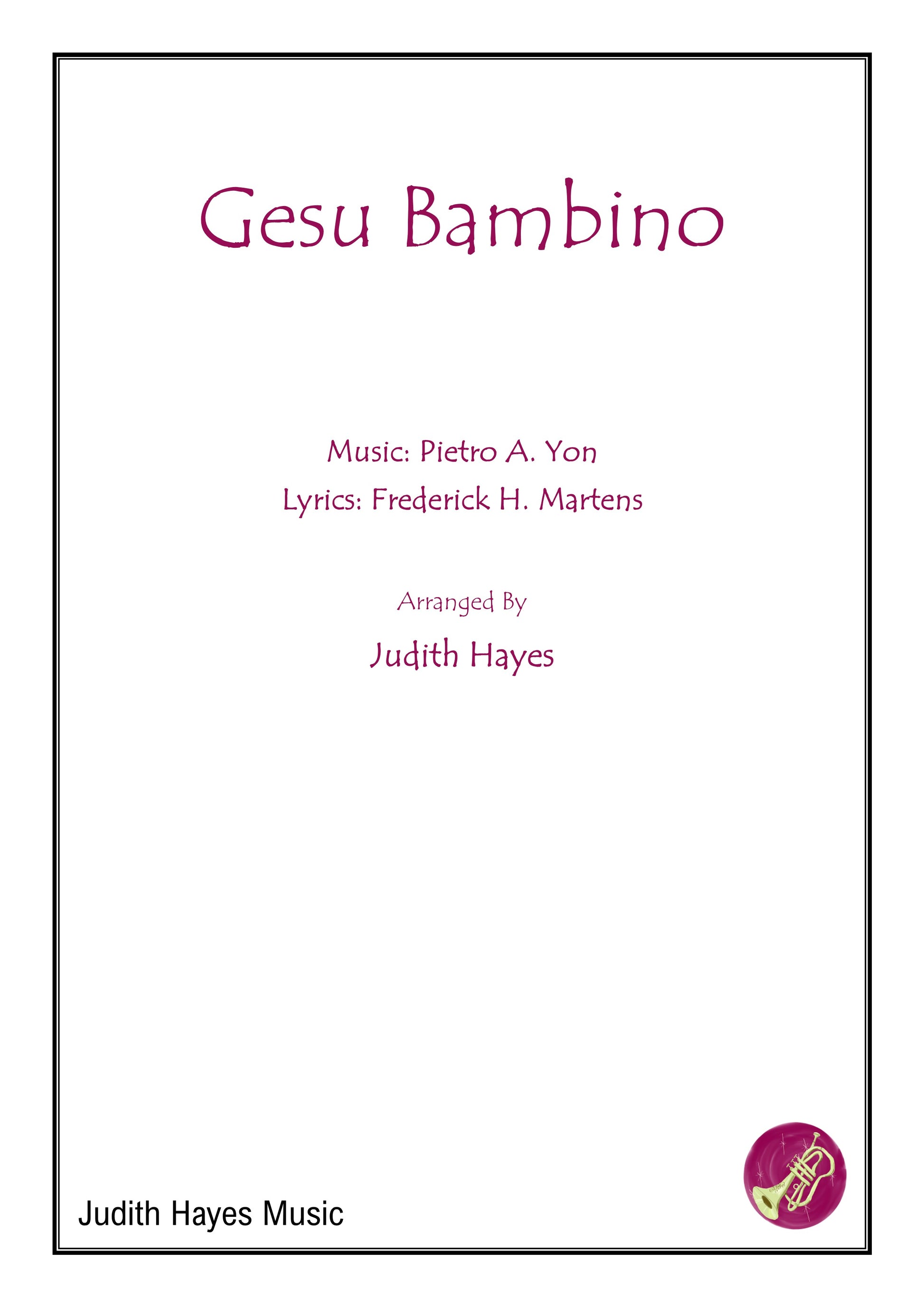 £30.00
£30.00Gesu Bambino - Brass Band - JHM006
COMPOSER:Music: Pietro A. Yon ~ Lyrics: Frederick H. MartensARRANGER: Judith HayesA great new arrangement from Judith Hayes for your Christmas concert
In Stock: Estimated dispatch 3-5 working days
-
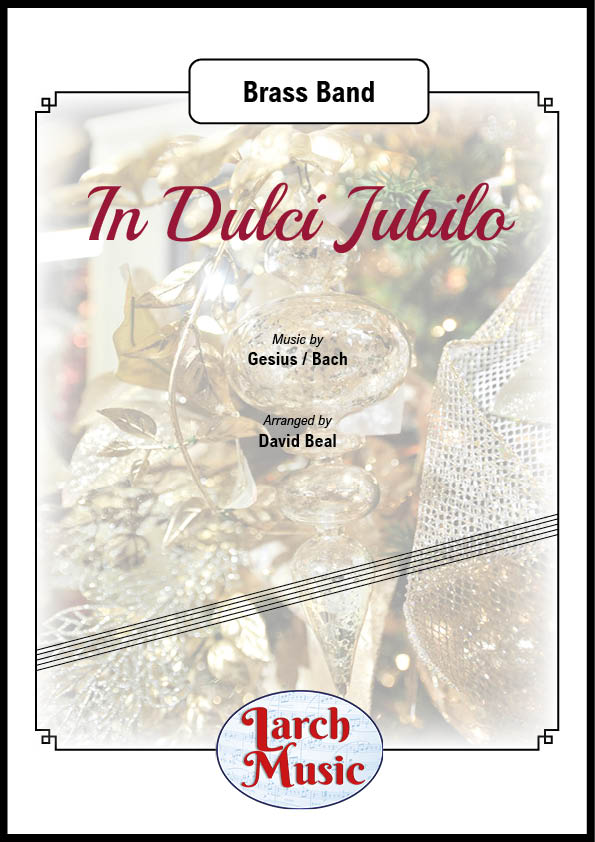 £30.00
£30.00In Dulci Jubilo (Gesius/Bach arr. by David Beal) - Brass Band Sheet Music Full Score & Parts - LM105 - Gesius / Bach
COMPOSER: Gesius / BachARRANGER: David BealA wonderful arrangement of this classic piece given a "through the ages" treatment. Starting with a nice ensemble version developing into a classic light rock version then moving into a Bach Choral harmonious style to a large vibrant ending.One for your Christmas concert.LM105 - ISMN : 9790570001057
In Stock: Estimated dispatch 3-5 working days
-
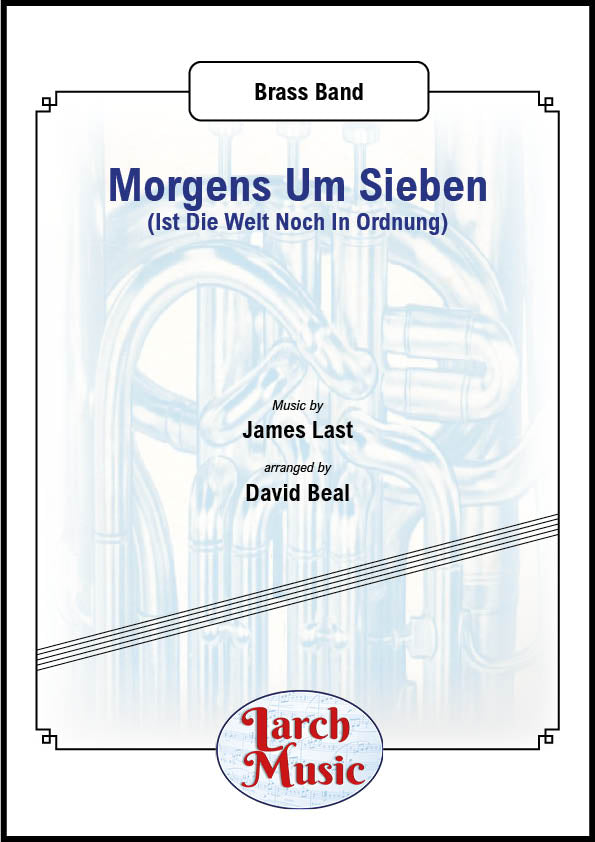 £21.50
£21.50Morgens Um Sieben (Is Die Welt Noch In Ordnung) (James Last arr. by David Beal) - Brass Band Sheet Music Full Score and Parts - LM703
COMPOSER: James LastARRANGER: David BealRemember the 1968 Film Morgens Um Sieben (Mornings at Seven)?orThe theme to the BBC Ice Skating back in the 80's?Well this is the tune from both...A great arrangement suitable for any concert not forgetting the 7 bell tolls in the final few bars. Very effective.
In Stock: Estimated dispatch 3-5 working days
-
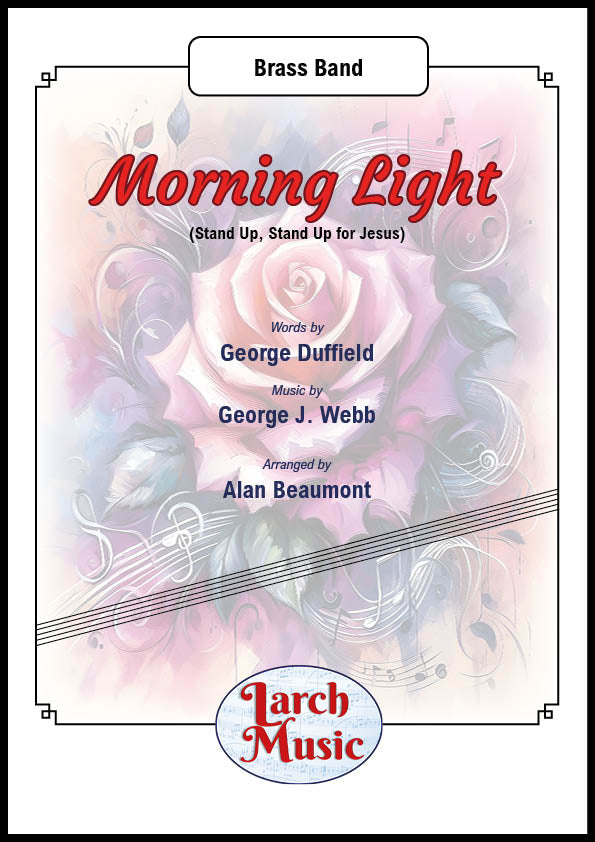 £30.00
£30.00Morning Light (Stand Up, Stand Up for Jesus) - Brass Band Sheet Music Full Score & Parts - LM605 - George Duffield & George J. Webb
COMPOSER: George Duffield & George J. WebbARRANGER: Alan BeaumontBased on the Hymn Tune 'Stand Up, Stand Up for Jesus'"Stand Up, Stand Up for Jesus" is an American Christian hymn. It was written byGeorge Duffield Jr.in 1858 and is based on the dying words of Dudley Atkins Tyng.The traditional tune "Webb" was composed by George James Webb, based on the melody ofFranz Schubert's"Die Forelle" ("The Trout").Makes a great concert opener or closerLM605 - ISMN : 9790570006052
In Stock: Estimated dispatch 3-5 working days
-
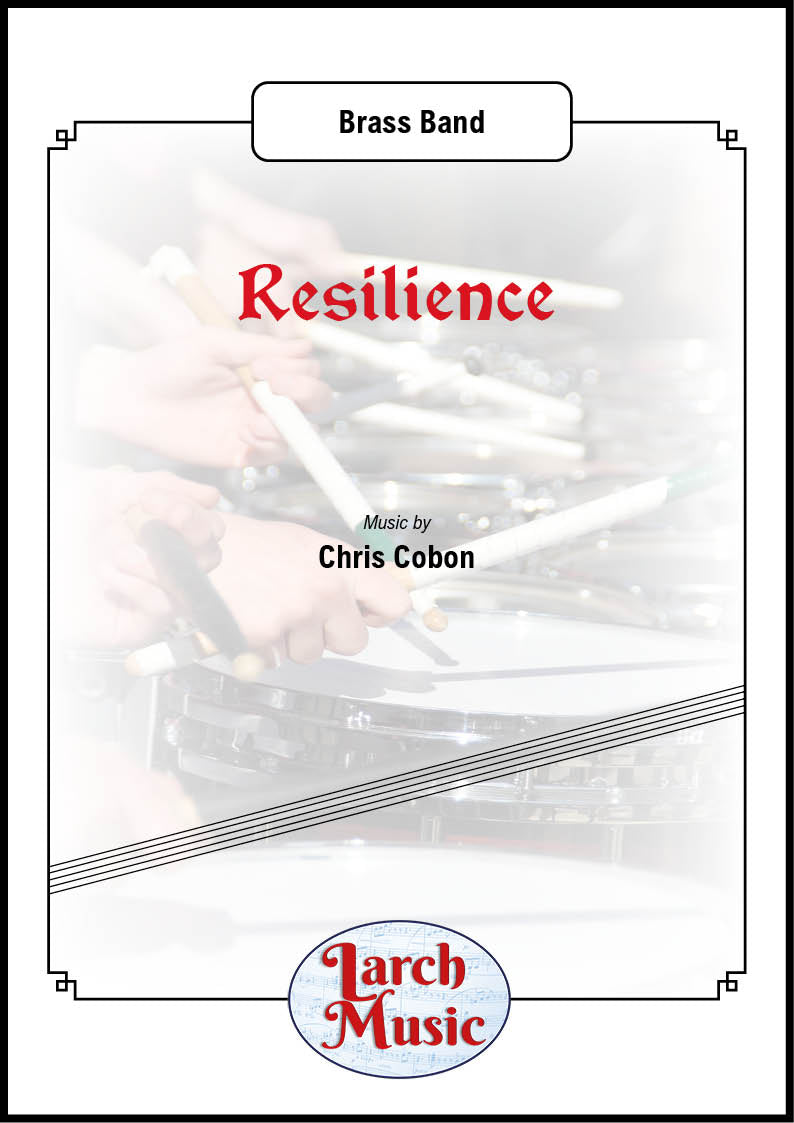 £25.00
£25.00Resilience (March) - Brass Band Sheet Music Full Score & Parts - LM940 - Chris Cobon
COMPOSER: Chris CobonA great concert march from the pen of Chris CobonOne to add to your concerts this year and sure to be a crowd pleaser.LM940 - ISMN : 9790570009404
In Stock: Estimated dispatch 3-5 working days
-
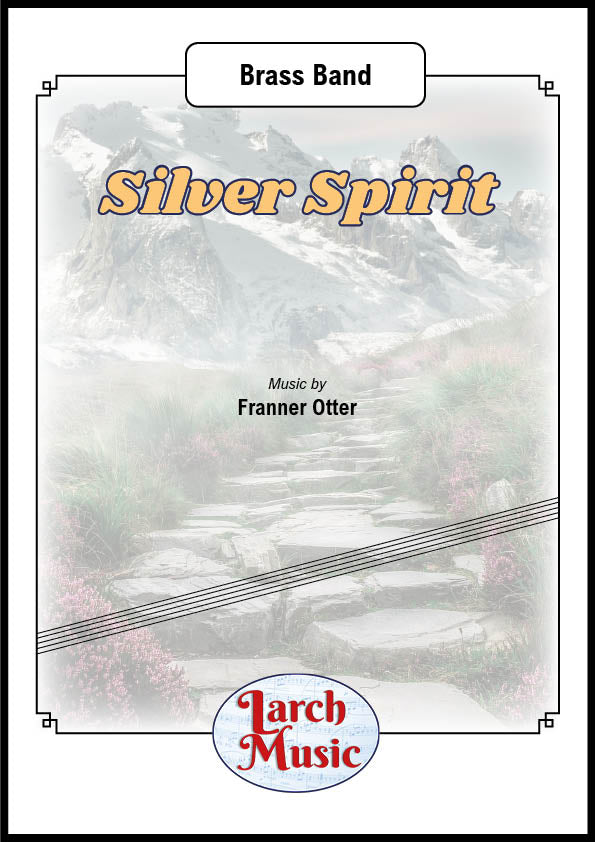 £25.00
£25.00Silver Spirit - Brass Band - LM369
COMPOSER: Franner OtterA Concert Piece for Brass Bandby Franner OtterThis piece was inspired by the resilient spirit that quickly blossomedwithin the brass band movement as a result of the Covid-19 lockdown.Despite being unable to meet and play together,bands found freedom of expression through other methodsof making music together such as online group performanceswhich enabled a whole new world of collaborative music-making to flourish.Band members were able to share their musical talentand the joy of performing with a whole new audienceas well as developing and nurturing a new outlet of creative expression.Instead of remaining musically confined during lockdown,brass bands and their members found a new freedomswithin this structure to create and share music with others.This composition is intended to reflect the cheerfuland good-humoured attitude of band membersin the way that they went about coping with the enforced restrictionsand the happiness that was demonstrated in making music together.This piece is dedicated to the positive spirit of theBrass Band movement that has shone through this difficult time.Franner Otter
In Stock: Estimated dispatch 3-5 working days










